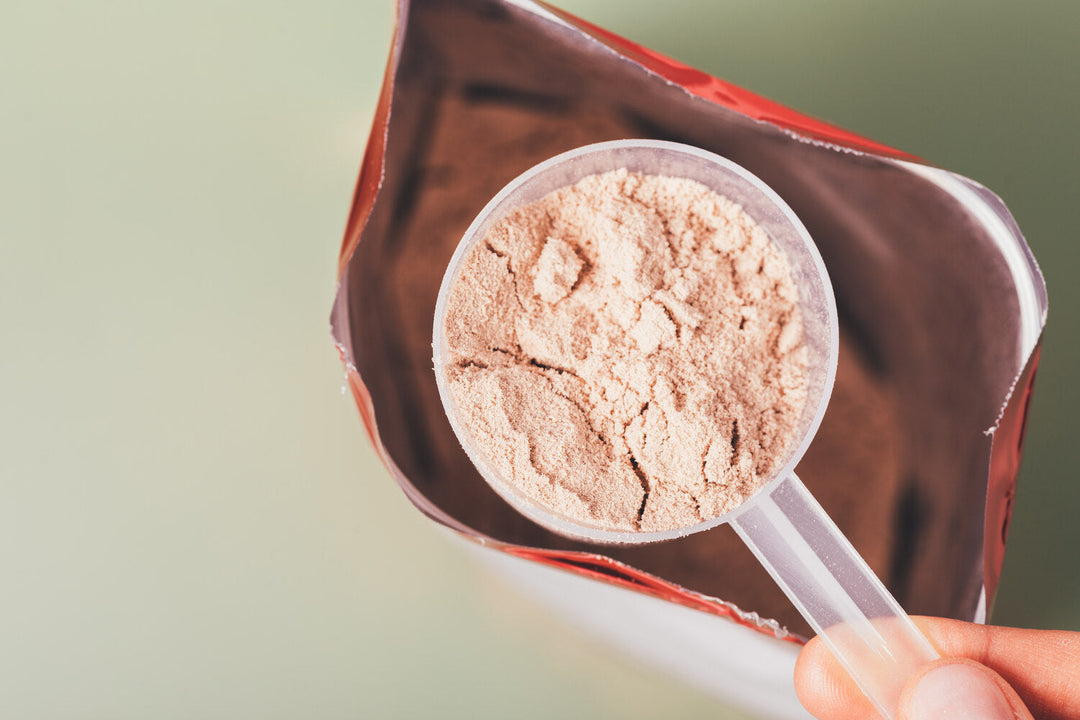Casein vs. Whey Protein
When it comes to protein powders, choosing the right one can make all the difference in supporting recovery after surgery.
Casein vs whey protein is a debate we hear often. While both provide a high-quality source of protein, they function differently in the body.
For individuals preparing for surgery or healing afterward, understanding these differences is key to making an informed choice.
In this article, we'll explore the unique benefits of each to help you decide which one is right for your needs.
What this article covers:- What are Casein and Whey Protein?
- How They Differ in Production
- Nutritional Profile Comparison
- Benefits of Casein Protein
- Benefits of Whey Protein
- Side-by-Side Comparison: Casein vs Whey Protein
- Possible Side Effects and Considerations
- References
What are Casein and Whey Protein?
Casein and whey protein both come from milk, but they have distinct characteristics.
Casein is the primary protein found in milk, making up around 80% of milk protein, while whey constitutes about 20%.
During cheese production, milk is curdled, causing the proteins to separate: casein forms the curd, and whey remains as a liquid byproduct.
How They Differ in Production
The production process for casein and whey is straightforward. Whey protein is obtained from the liquid that separates during cheese-making, then dried and processed into a powder.
Casein, on the other hand, is made from milk curds that are dried and ground into a powder.
Both proteins undergo filtration and purification to ensure a high-quality product, free from lactose and fats.
Nutritional Profile Comparison
Protein Content and Amino Acid Profile
Both casein and whey are considered complete proteins, meaning they contain all nine essential amino acids necessary for the body to function optimally.
These amino acids are crucial because they are not naturally produced by the body, and thus must come from our diet.
Whey protein has a slightly higher concentration of branched-chain amino acids (BCAAs), including leucine, which plays a significant role in muscle repair and recovery.
Research suggests that these amino acids are essential for tissue repair and maintenance, which makes both proteins valuable for supporting the body's recovery processes after surgery.
Whether you need the fast-absorbing qualities of whey or the longer-lasting effects of casein, both options can provide a solid foundation of nutrients to help you achieve your recovery goals.
Digestibility and Absorption Rates
Where whey shines is in its quick absorption rate. Whey protein is absorbed rapidly, making it ideal for a quick post-surgery recovery boost.
Casein, however, digests slowly, releasing amino acids steadily over time. From what we've seen, this can provide a longer-lasting supply of protein, which is helpful for sustained recovery.
Additional Nutrients
In terms of micronutrients, both casein and whey offer beneficial nutrients like calcium, potassium, and magnesium.
These nutrients contribute to bone health and muscle function, important for post-surgery recovery and overall health.

Benefits of Casein Protein
Casein is known for its slow digestion, which means it gradually supplies amino acids over a longer period.
Additionally, it’s great for nighttime recovery when taken before bed, as it helps maintain protein synthesis while you sleep.²*
Benefits of Whey Protein
Whey protein is well-loved for its fast-absorbing properties. For post-surgery recovery, when the body is in need of immediate nutrients, whey protein can offer a quick amino acid boost.
Because it's quickly digested, it's often recommended in situations where your body needs immediate support.
Whey protein vs pea protein is also a commonly compared pairing, but whey typically offers a more complete amino acid profile.
Side-by-Side Comparison: Casein vs Whey Protein
Absorption Rate and Timing
- Whey: Absorbs rapidly, ideal for right after surgery or a workout when your body needs protein quickly.
- Casein: Slow-digesting, providing a steady flow of amino acids, perfect for prolonged support.
Best Time to Use Each
- Whey: Perfect for mornings or post-surgery recovery when a fast protein source is needed.
- Casein: Best taken at night or between meals for a long-lasting release.
Possible Side Effects and Considerations
While casein and whey protein are both safe and beneficial, some people may experience minor side effects like digestive discomfort, especially if lactose intolerant. Whey protein isolate is a better option for lactose intolerance. For those with severe allergies or sensitivities, plant protein may be a suitable alternative.
Additionally, collagen vs. whey protein is often compared, but collagen lacks the complete amino acid profile of whey and would offer more benefits when taken with whey.

Conclusion
Both casein and whey protein have unique benefits, and your choice largely depends on your recovery goals and personal preferences.
Whey is great for a quick post-surgery boost, while casein provides sustained support throughout the day or night.
At Unjury®, we’re here to support your recovery journey with high-quality protein options tailored to your needs.
If you're ready to take the next step in your recovery with the right protein, check out our full range of products at Unjury.
References
- Healthline. (n.d.). Whey Protein 101: The Ultimate Beginner's Guide. Retrieved from https://www.healthline.com/nutrition/whey-protein-101
If you want to learn more, why not check out these articles below:
- Whey Isolate vs Whey Protein
- Complete vs Incomplete Proteins
- Plant Protein vs Whey
- Plant Protein vs Animal Protein
- List of High Protein Foods
- How to Add More Protein to Diet
- Does Protein Make You Feel Full?
- When to Eat Protein Bars
- How Much Protein Should an Athlete Eat?
- How to Add Protein to Salad
- Why Am I Craving Protein?
- What Is the Best Protein Powder for Weight Loss?*
- Best Protein Powder for Women’s Weight Loss*
- Best Protein Powder for Menopause Weight Loss*
- Best Chocolate Protein Powder for Weight Loss
*These statements have not been evaluated by the Food and Drug Administration (FDA). These products are not intended to diagnose, treat, cure, or prevent any disease.











